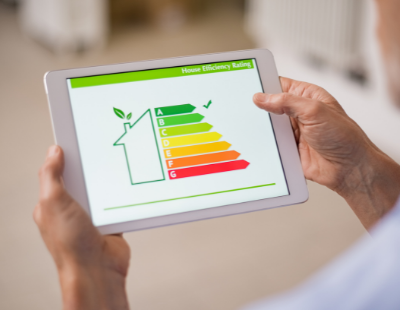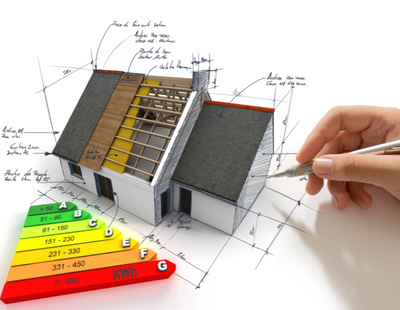
With the new EPC changes coming into force in April 2018, those who invest in the private rented market should already be considering which energy efficient measures to implement in order to increase the EPC rating of their properties in the most cost effective way.
Not only will these actions benefit you as a landlord, increasing the value of your properties, but they will also make the homes you own more attractive to future tenants, while helping them save money on their bills.
If the EPC rating on your property or properties is currently below E and you are looking where to start making changes, Paul Campbell of Greenvision Energy, has the following suggestions.
Home insulation
Home insulation is one of the best things you can invest in to reduce heat loss and improve your EPC rating. In addition, there are various government grants available that cover a significant proportion of the costs which means that the insulation can often be installed with a small initial outlay. Here are the various options:
External wall insulation
This type of insulation is suitable for homes with solid brick walls - generally those built before 1920. Its quick and easy to install, causing minimum disruption, and has the extra benefit of improving the property’s appearance and value. External wall insulation can also increase the life of the property by protecting the existing substrate from the, and can help with condensation problems. The result? Heating loss is reduced by up to 45% with annual savings of around £500.
Cavity wall insulation
Cavity wall insulation is also a quick process, often complete in less than two hours. It is specifically for homes built post-1920 as the external walls are made of two layers with a gap - or cavity - between them. Cavity wall insulation fills that gap, keeping the warmth in to save energy. Expect typical savings of around £160 per year.
Loft insulation
It may come as a surprise, but an uninsulated or badly insulated house can lose up to 33% of its heat through the roof. Under Government recommendations, loft insulation should be at least 270mm thick - typically made up of a 100mm layer running between the joists and a 170mm top layer running perpendicular to the joists. Cost savings for this system are roughly the same as cavity wall insulation.
Room in roof insulation
This has become more and more popular over the years as people choose to make the most of their loft by turning it isnto another bedroom, or office.
The installation is carried out by securing ‘insulating batts’ to the walls and ceiling of the room and slabs of insulation are fitted between them. The insulation is then covered with plasterboard and skimmed ready for decoration. Opting for room in roof insulation could lead to savings of over £500 per annum.
Smart storage heaters
Exactly what it says on the tin; smart storage heaters store and then release heat at pre-set times and temperatures. Not only are they up to 27% cheaper to run than a standard storage heater, they’re up to 47% cheaper to run than an electric convector heater, and often come with a boost option for unexpected heat demands (i.e. on those cold winter nights!) Look around for smart storage heaters that will benefit your EPC rating as not all of them do.
LED bulbs
LED bulbs are slightly more expensive, but use 90% less energy than an incandescent or halogen bulb. They also last and last up to 25 times longer (drastically reducing replacement costs), are safer to work with and are more much environmentally-friendly as they contain no harmful substances like Mercury (often found in CFL and halogen bulbs).










.png)









Join the conversation
Be the first to comment (please use the comment box below)
Please login to comment